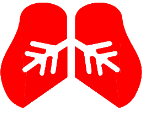
When part of the immune system is either absent or not functioning properly, it can result in an immune deficiency disease. When the cause of this deficiency is hereditary or genetic, it is called a primary immunodeficiency disease (PIDD). Researchers have identified more than 300 different kinds of PIDD.
The immune system is composed of white blood cells. These cells are made in the bone marrow and travel through the bloodstream and lymph nodes. They protect and defend against attacks by “foreign” invaders such as germs, bacteria and fungi. Antibodies are proteins that are made in response to infection or immunization and help fight infections. Complement is another blood protein that plays a protective role in the immune system.
In the most common PIDDs, different forms of these cells or proteins are missing or do not function. This creates a pattern of repeated infections, severe infections and/or infections that are unusually hard to cure. These infections may attack the skin, respiratory system, the ears, the brain or spinal cord, or in the urinary or gastrointestinal tracts.
Primary Immunodeficiency Disease Symptoms
Serious PIDDs typically become apparent in infancy. For example, severe T-cell or combined immune deficiencies typically present in infancy. However, some antibody deficiencies may present in older children or adults. In milder forms, it often takes a pattern of recurrent infections before PIDD is suspected.
Important signs that may indicate a PIDD include:
• Recurrent, unusual or difficult to treat infections
• Poor growth or loss of weight
• Recurrent pneumonia, ear infections or sinusitis
• Multiple courses of antibiotics or IV antibiotics necessary to clear infections
• Recurrent deep abscesses of the organs or skin
• A family history of PIDD
• Swollen lymph glands or an enlarged spleen
• Autoimmune disease
